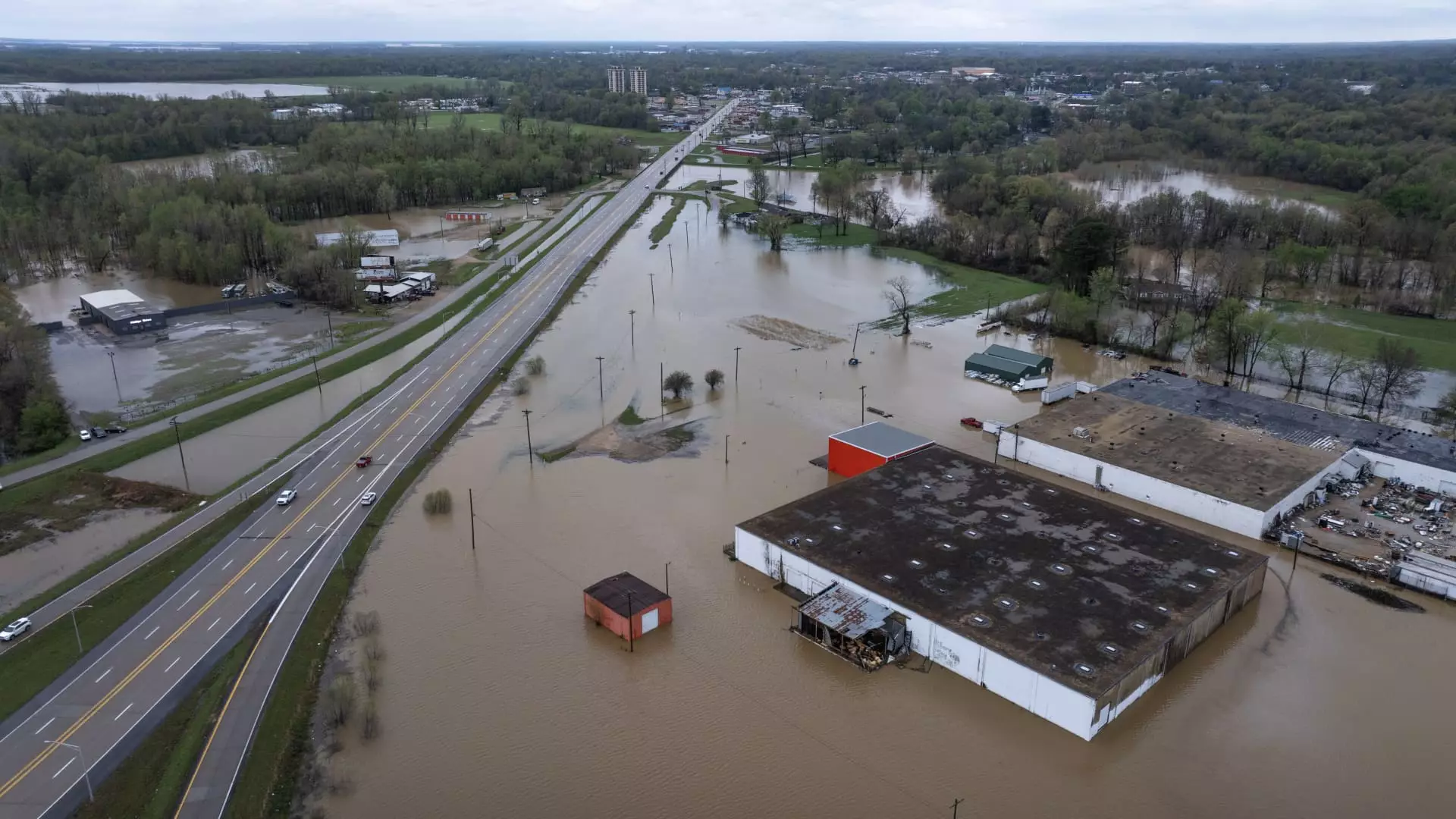The past week has shattered many communities in the Northeast, as catastrophic flooding ravaged states still recovering from a series of violent spring storms. These intensity levels were alarming, claiming the lives of at least 21 individuals across multiple states, not just as mere numbers but as reminders of the deep-seated vulnerabilities present in our infrastructure and emergency response systems. The grief is palpable, as families mourn loved ones lost to nature’s unrelenting wrath, and questions linger about the role human decisions play in exacerbating such disasters.
It’s not just the dead that haunt us; it’s the shocking efficiency with which our systems failed to protect lives. In Kentucky, river levels surged alarmingly—up 5 feet in just a day—while neighborhood evacuations hit low-lying communities near the Kentucky River. Such reports raise an uncomfortable question: Can we, as a society, continue to turn a blind eye to the increasingly energetic temperaments of our climate?
The Underlying Reality of Disasters
Events like the recent calamities illustrate a fundamental truth: our vulnerability to natural disasters is compounded by flawed urban planning and insufficient investment in disaster preparedness. Muddy fields that could have absorbed rainfall lay barren and unprotected; levies that should have shielded communities are no match for climate change, which has altered precipitation patterns, increasing the magnitude and frequency of such storms. Officials at the Anderson County Fire Department relayed heartbreaking stories of families who’ve “lost everything they’ve had.” To label this a mere coincidence would be a gross understatement.
Rather, let’s call it for what it is: a failure to take preventative measures seriously. We are witnessing what local assistant chief Chad Womack describes as “one of those once-in-a-generation types of storms,” but in truth, this storm may not be so rare if we consider the increasing volatility of weather patterns linked to human activity. Ignoring climate change is akin to ignoring a looming iceberg while sailing in a crowded ship; the consequences will inevitably be catastrophic.
The Perils of Inaction
As flooding endangers communities from Arkansas to Kentucky, with grim forecasts projecting river levels to crest in the coming days, it becomes painfully clear that our societal focus remains misguided. Rather than investing in sustainable infrastructure, we marvel at the technological conveniences of modern life while neglecting the essentials of disaster resilience and community support. With a staggering record of 15.59 inches of rainfall in just four days in Kentucky, we are staring directly at a stark and unforgiving reality—a reality that signals the pressing need for innovative solutions.
Across the Midwest and South, torrential rains served as both a sudden shock and a stark reminder of nature’s unpredictability. Each region bears its scars; 93 preliminary tornadoes have already fallen this year, signaling that we are operating on borrowed time. While weather forecasts hint at more rain for the Southeast, it begs the question: how many more warnings must we ignore before we take action?
The Call for Change
While communities band together to clean up and recover from devastation, we must grapple with the truth that the current crisis stems from systematic negligence. The National Weather Service indicates that flooding will eventually relent; however, without substantial policy revisions and infrastructure development geared towards climate resilience, we risk fates far worse than what we’ve experienced.
It’s imperative that we don’t let this be a fleeting moment in our collective consciousness. The time for half-hearted measures and reactive responses is behind us. We must demand comprehensive climate action and allocate resources toward sustainable initiatives that shield society from harm. The anguish echoing through Kentucky and surrounding areas amplifies the urgent call for legislative changes that prioritize environmental concerns.
As we witness the cascading effects of our inaction, let’s not forget that catastrophes like these are not isolated events. They are distressing reflections of our social framework, demanding a re-evaluation of our responsibilities to our fellow human beings, our environment, and the future we wish to shape. The consequences of silence during this alarming era of climate crisis are too severe; let this be the moment we choose awareness over apathy.


Leave a Reply